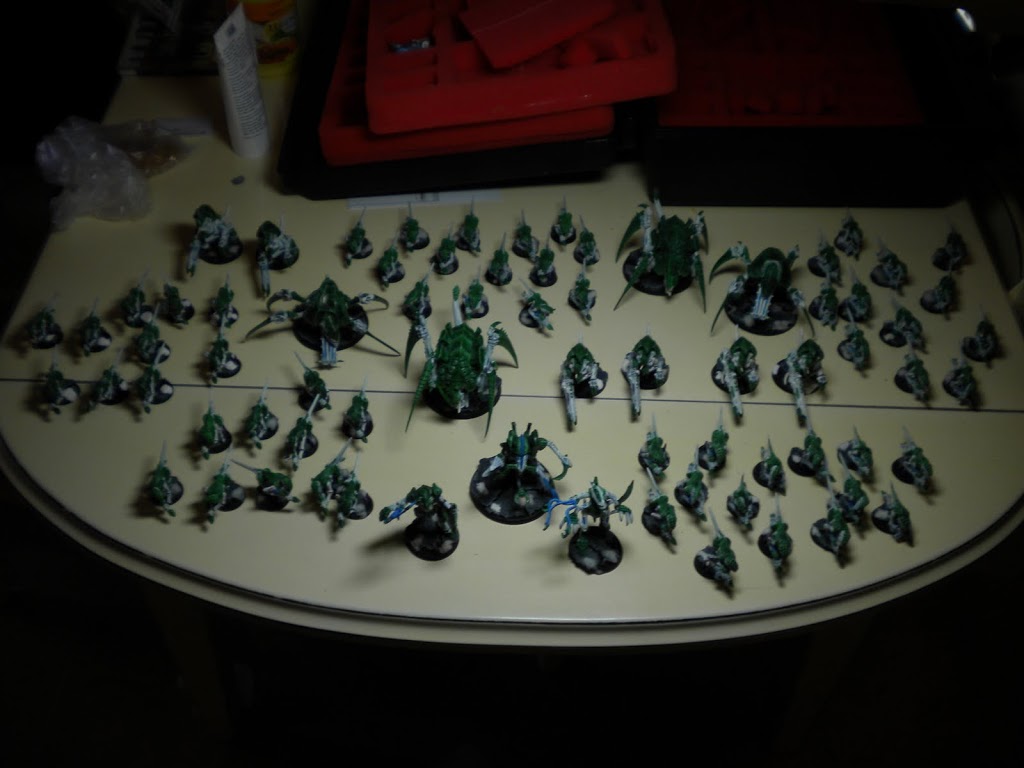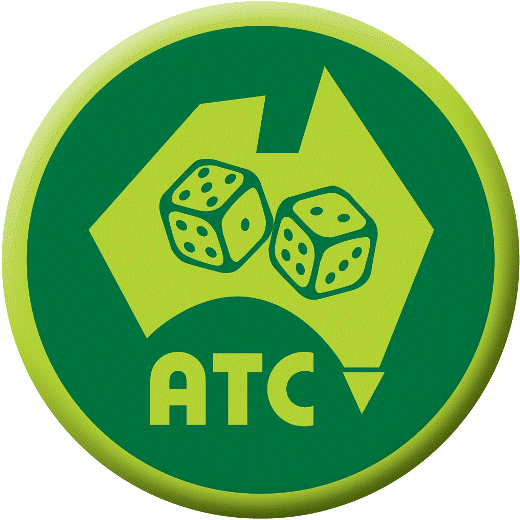40K: Australian Team Championship – Roundup!

You know that ETC thing? Well Australia decided to do it as well, minus the silly no special character restriction.
Rather than country based it was Australian state based with offers extended to nearby countries such as New Zealand. No overseas travellers this time, first year running, but six of the states/territories attended (there are eight total). This happened back in early September and being the lovely chap from 3++ is the new black, I was lucky enough to be invited to the NSW team and off we merry went. I took Tyranids after the other Tyranid player whined about how bad they were and he wanted to play Grey Knights *eyeroll.*
The Basics
So a quick re-cap of the system. If you know how the team match-up tournament works, you can skip this. We played five games over the weekend, one against each team (the advantage of only six showing up) with each team consisting of eight players. Only one of each codex was allowed per team but each time could choose which armies to use. Points was 1750. The teams would roll-off and the losing team put up two armies for the opponent to choose on of their armies to play against. This procedure continued until all the armies were matched up. Winning the roll-off was very important then as it allowed the team to basically choose five of the match-ups since by choosing the 2nd last match-up, the last match-up was set in stone (degrees of freedom and all that).
Each game then gave the team a set amount of battle points – 15 for a win, 10 for a draw and 5 for a loss, with victory point difference adding to or subtracting from that total (+1/-1 for every ~250 VP greater/less than your opponent). Adding up all the team scores for that round netted either team a win (2 points, 85 battle points or more), draw (1 point, between 84 and 75 battle points) or a loss (0 points, 74 or less battle points) and the team with the most points at the end would win (tiebreakers based upon battle points).
Simple!
This system is a step outside of the normal 40k realm as armies which are pretty decent but have terrible match-ups (i.e. Tyranids, Blood Angel Jumpers, Draigowing, etc.) can avoid those match-ups and be a lot more useful. At the same time, there needs to be several balanced lists which can be put up and not offer the opponent severely advantageous match-ups. There are two differing schools of thought here as well – the Europeans seem to like these lists to be ‘draw-based’ lists, which rather than playing for wins play for draws. At the ATC these lists were generally balanced lists which would do well no matter what or bait lists which would get smashed but allow the rest of the field to have better match-ups.
To the Actual Tournament Now!
Overall it was a blast. Australia has a pretty heavy comp tournament scene which I generally don’t attend (only going to very low or no-comp tournaments) so it was nice to get another no-comp tournament in. Furthermore, the Western Australians (who generally don’t come over to the East Coast, big distance and all) brought their no-comp playstyle (they don’t play comp over there) across the country. Was great to meet them and a lot of others from around the country plus catch up with old friends.
We stayed at the venue of the tournament which is a nice change for Australia (I generally travel up to 1.5 hours for tournaments locally) and the room was certainly big and spacious with easy access to alcoholic beverages (a must at any Australian tournament) and food (less important). The terrain was pretty good across most of the boards with some too big pieces (i.e. the Games Workshop landing pad + fortress thing) and maybe a little lacking in the BLoS department. For the most part though there was 25% coverage and the pieces were big enough to give cover to tanks/MCs.
As I said before, I ended up taking Tyranids which was a match-up based army and therefore did quite well with four wins and one draw. I got two green matches (games I should have won) and three yellows (games which were winnable) so good job on the team side there. Battle reports are up with Game 1 against Eldar, Game 2 against Tyranids, Game 3 against Orks, Game 4 against Orks and Game 5 against Blood Angels. Our team also had Space Marines, Space Wolves, Grey Knights, Chaos Daemons, Chaos Space Marines, Imperial Guard and Dark Angels but were only able to manage a very close fourth place (we tied on team points and missed out by one battle point). This comes down to the nature of the format as in our Round 4 loss the mission was Pitched Battle with Capture & Control. As a team we played very aggressive to try and win each of those games and we ended up with one major win, one major loss and six even or losing draws since our opponents played defensive. The couple of lost battle points each round since we were more aggressive ended up as a loss for the team rather than a draw.
 |
| My Tyranids – yaya shoddy lighing |
Lesson learned! I think having a ninth team member like many of the ETC squads do to roam around and indicate to each of our team members what we need to do (i.e. stay with the draw, minimise losses, get the win, etc.) would have been really helpful. None of the teams at the ATC had done this but an extra pair of eyes wouldn’t have gone amiss (they obviously cannot help in terms of strategy during games but people were able to communicate how the team was going and what each individual needed to do to help the team).
The results are as follows:
1st = Queensland (4-1-0)
2nd = South Australia (3-1-1)
3rd = Victoria (3-0-2)
4th = New South Wales (3-0-2)
5th = Western Australian (1-0-4)
6th = Australian Capital Territory (0-0-5)
So well done to Queensland! The lists were an interesting mix with some very odd ones but when you took into account the match-up system of the tournament, they weren’t too bad. The interesting thing to note is the Western Australian lists were perceived as the strongest and considering they are used to playing no-comp and real 40k, their placement was quite low. This may have been due to the distance travelled (something like six times that of the other states) and the cost associated and perhaps not all of their best players came down. Hopefully next time!
The event was great fun all round and whilst our team didn’t make the podium we learned a lot about the system and are readying our team for next year with more knowledge in hand. Again, the extra player to use as a sub if necessary (Victoria lost a member on Day 2 due to a broken leg) but otherwise keep the team together and help provide overall team strategy during each round. More balanced lists rather than match-up based lists (we had four of each and I think five or even six balanced lists is better). With this concept we should get five to six yellow/green match-ups from the balanced lists and then use the match-up armies for greens. Obviously having the right players for each list is also very important as the balanced armies are generally going to have harder games since they aren’t being matched-up for an advantage whilst the match-up armies are (as evidenced by my series of games). Obviously working all of this out well before the event (lists are released about a month before hand) is important as it gives you time to practice against opposing lists and ensure your team has a strategy for each opposing team.
Overall it was a fun, yet very different event. With most of the games very match-up dependent there were some games which were very likely going to be wins or losses in a particular direction and one of the many reasons why taking success from these events to normal ability at 40k can seem a bit silly. You obviously need playing ability to get onto these teams and then do well but sometimes things are going to be in your favor so you should do well. That being said, it’s a different flavor from your run of the mill 40k tournament and it was great to be part of a team. When you did well you felt like you were helping them out and when you didn’t do too well your team mates could help you out. Not only that but you had a whole group of people willing to debrief about each of your games – something your friends aren’t always too keen on at normal tournaments!


